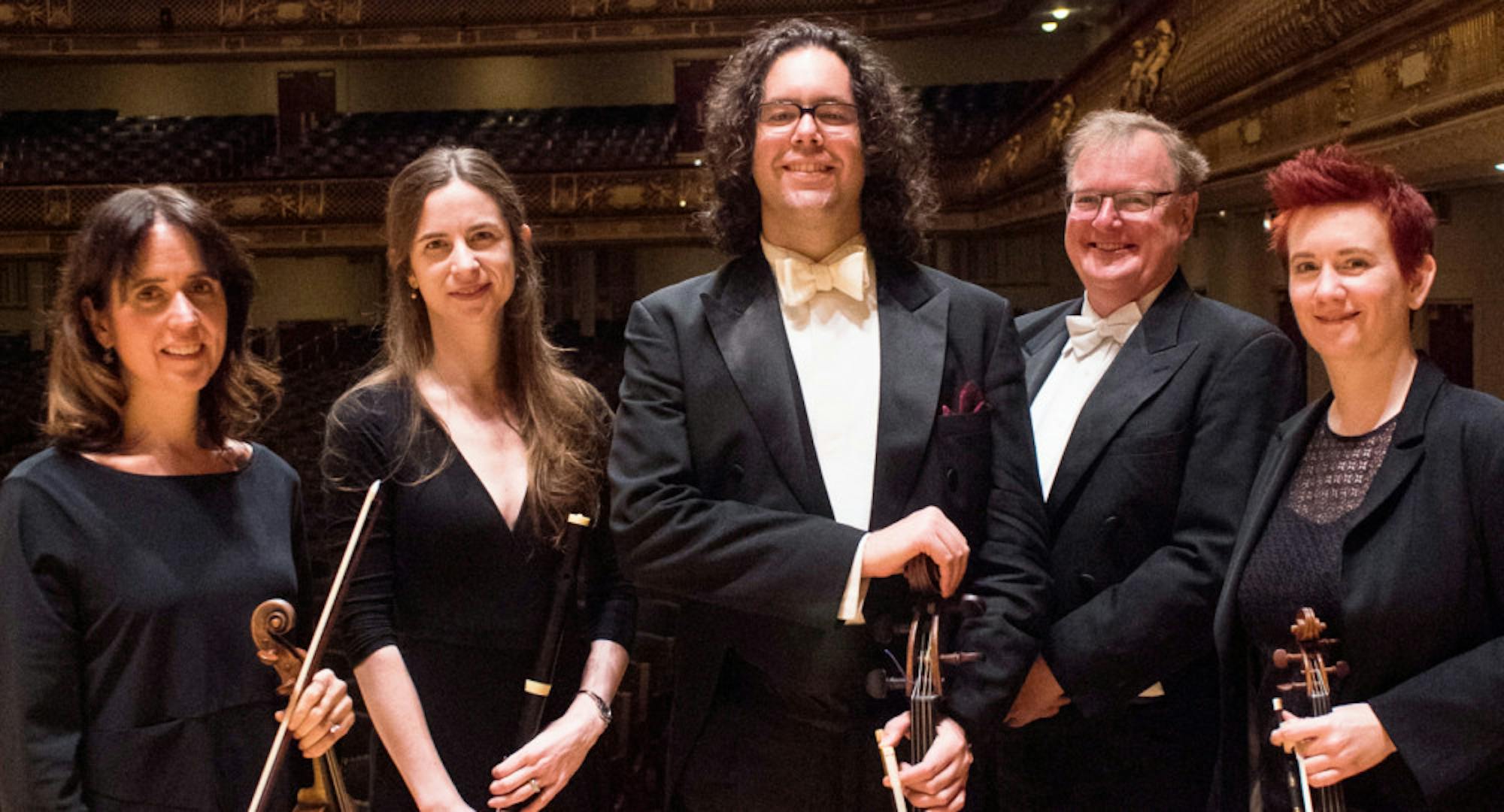For many ensembles and artists, COVID-19 has immeasurably changed the industry of live performance. Many ensembles have had to adapt; the Handel and Haydn Society (H+H), Boston’s premier historically informed performance (HIP) ensemble, has been forced to reinvent their season of live concerts in accordance with new public health guidelines.
Conveniently, COVID-19 and HIP complement each other well. As an ensemble that practices HIP, concert repertoire is normally baroque or classical and is performed on period instruments in appropriately sized ensembles. According to Guy Fishman, the principal cellist of H+H, the repertoire performed by the ensemble often lends itself to smaller groups of musicians.
“You can play a Vivaldi concerto with 40 people, you can also play that same concerto with six people, and have it be equally powerful,” Fishman said in an interview. “In fact, more likely than not, it would have been composed for that smaller size of an ensemble.”
With the ensemble’s ability to safely rehearse in smaller groups with primarily strings and keyboard instruments in mind, a modified concert schedule for the fall was released: the COVID-19 catch? At least the first five concerts of the season will be livestreamed rather than performed for a live audience at Symphony Hall.
For each of these livestreamed performances, H+H plans to limit the number of performers on the stage and have them all appropriately distanced, in accordance with health guidelines.H+H is both an instrumental and a choral society and, in a typical season, would regularly perform large-scale choral works of the baroque and classical periods.
“The safety around singing is an issue,”Fishman said. “That is especially harmful for H+H because we are, at our core, a choral society.”
This does not mean that vocalists of H+H will remain silent all season; several livestreamed concerts will feature solo vocalists or small choral ensembles drawn from the members of the H+H Chorus and members of the H+H Youth Choruses Concert Choir.
One question that has come up among Fishman and other professional musicians concerns the value of live music over livestreamed music. According to Fishman, the argument in favor of live music lies in the relationship between communication and community.
“The word ‘communication’ and the word ‘community’ come from the same root in Latin; you have to communicate in order to create community,” Fishman said. “A community communicates amongst itself. So as much as music communicates something, what the composer believed or what you, the musician believed the composer intended, you are partaking in community building. That can be done virtually, but the community also needs to experience itself as a unit and that is what those two hours in the concert hall provide … That experience is irreplaceable, both for the musicians and for the audience.”
Despite the irreplaceability of live performance, Fishman and the rest of H+H have been taking COVID-19 guidelines very seriously and are looking forward to an age where live performance is an option once again.
“There is nothing like air molecules that have been displaced coming from a vibration coming from an instrument or a voice that is in the same vicinity of you hitting your eardrums, as opposed to those which have been displaced by a speaker, like on your computer,” Fishman said. “You cannot replicate the sensation, the physical sensation.”
Fishman performed in the first virtual concert of the season, “The Magic of Bach,” alongside Emi Ferguson (flute), Aisslinn Nosky (violin), Susanna Ogata (violin) and Ian Watson (harpsichord). The chamber ensemble performed three works of Johann Sebastian Bach.When Ferguson was playing, the rest of the musicians in the space were masked, but when it was only the strings and harpsichord playing, members of the ensemble removed their masks and sat far apart from one another.
The concert was performed in the Fraser Performance Studio at WGBH, and according to Fishman, “air circulation has been attended to ... and they’ve done something with that air circulation to increase it.” Only five people are allowed in the studio at a given time due to new health regulations.
Because listeners will attend each upcoming H+H concert from their homes, Fishman offered suggestions as to how the virtual audience members can approach this unconventional concert experience.
“I hope the listener comes as they are. The good news with Bach is that there is something for everyone; he wrote such multilayered music that you can enjoy the instrumental virtuosity, you can enjoy the counterpoint — the way voices interact with each other and therefore the way musicians interact with each other. You can enjoy the material and the way in which he treats the material, and how much variety you find with a relatively small number of players,”Fishman said.
With unemployment of professional musicians having skyrocketed after the national shutdown this past spring, there has been concern regarding the eternality of the live performance industry. Fishman, however, does not find himself overly worried: “We’ve gone through plagues and we’ve gone through wars, depressions and famines, and music has survived. And classical music in particular, which is a genre that has been said to be dying for about a thousand years; for about a thousand years people have commented ‘oh this is the end of classical music.’ And it has yet to die.”






